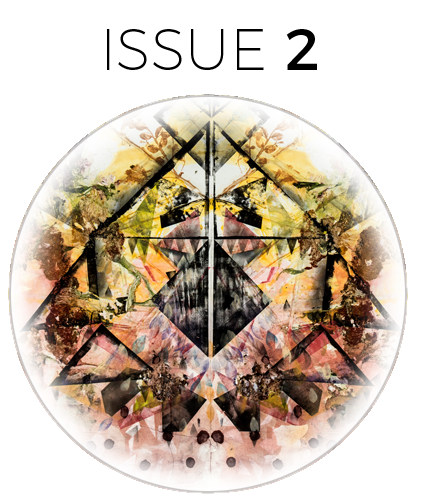Sandalwood RemainsFiction by Tara Isabel Zambrano
A woman gets on the bus. The metal door creaks, slams shut behind her. Men with tobacco-stained teeth, on the front row seats grin as she passes. The bus lurches forward. She curses and lands on the seat next to me. Green sari, golden blouse. Red painted nails. She moves the wavy curls away from her neck and face, a nose ring shines. Outside, sand dunes of Thar extend on both sides of the bus, orange and smooth. |




